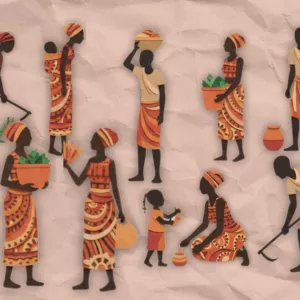The (social) science of climate action: What equitable climate adaptation looks like in the Global South
A collection of studies from the front lines of the climate crisis reveals that tackling inequality is fundamental to transformative adaptation By Eleanor Fisher, Jon Hellin, and Mary Ng’endo It’s a phrase we hear so often that it has almost lost its power: those least responsible for climate change suffer the most from its consequences. But for many social scientists,

The (social) science of climate action: What equitable climate adaptation looks like in the Global South
A collection of studies from the front lines of the climate crisis reveals that tackling inequality is fundamental to transformative adaptation
By Eleanor Fisher, Jon Hellin, and Mary Ng’endo
It’s a phrase we hear so often that it has almost lost its power: those least responsible for climate change suffer the most from its consequences. But for many social scientists, this isn’t just a distant maxim; it’s the daily reality for the smallholder farmers we work with across Africa, Asia, and Latin America. These farmers, who are crucial to global food systems, are on the front lines of a crisis they did not create. Their vulnerability isn’t just about being in the wrong place at the wrong time; it’s a product of deep-seated social, political, and economic inequalities that have existed for generations.
This is why, after years of research, we’ve come to a stark conclusion: simply introducing new technologies or tweaking existing agricultural practices will not be enough to secure a sustainable future. We need a fundamental shift in our approach, one that places social equity, the principles of fairness and justice, at the very heart of climate action.
This isn’t about making climate adaptation an optional add-on to business as usual; it’s about making it the foundation for business unusual. The scale of the climate crisis demands more than small, incremental adjustments. It requires what we call ‘transformative adaptation’, fundamental changes to the systems that govern our lives, from social norms and values to institutional practices and policies. This is critically necessary if we are to address the root causes of vulnerability and prevent further harm to human wellbeing.

